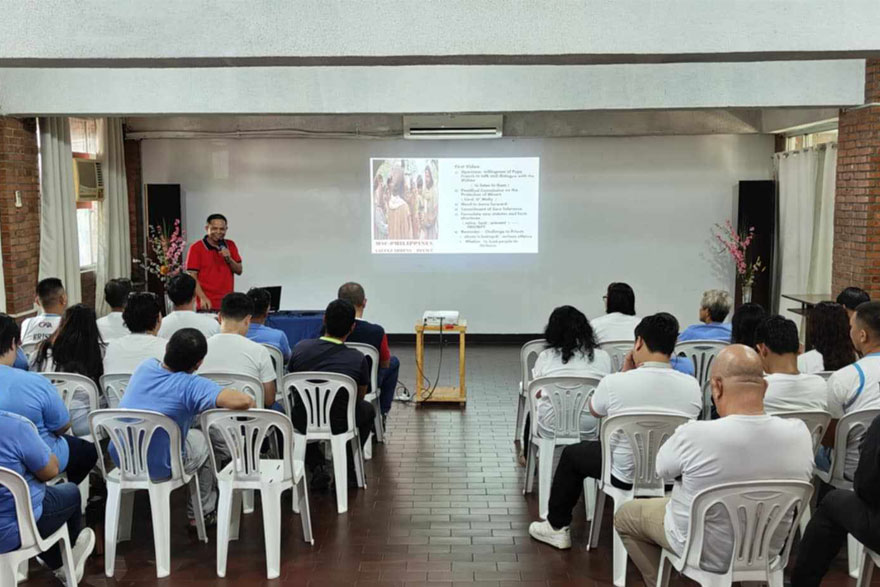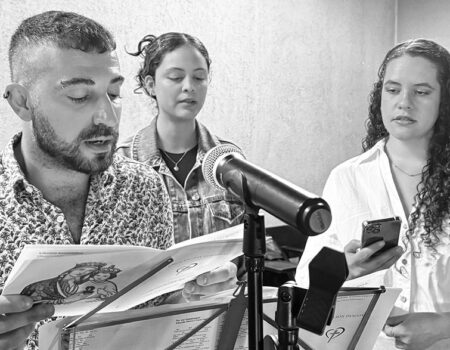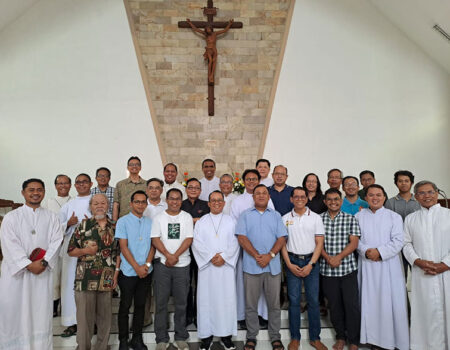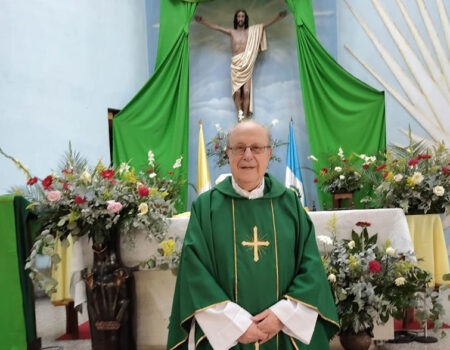Safeguarding: Pain and Shame
Saturday December 28, 2024

A path towards a safeguarding culture.
In the recent visits of Pope Francis to Timor-Leste and Belgium, it is unfortunate to read some items from online media about sexual abuse cases by Clerics being raised to get the attention of Pope Francis as head of the Catholic Church. Understandably, it was again an expression of urgent concern that the church must deal with responsibly and expeditiously. The warmth and glamorous welcome accorded to Pope Francis in Timor-Leste were somehow dampened by questions and doubts about the “church’s credibility” because of clergy sexual abuse cases and the perceived inadequacies of the Church’s response. It has been a common observation by some advocacy groups that the Church’s credibility has been compromised by global clergy sexual abuse. As expressed, for example, in the news item from the Associated Press (AP) following some clergy abuse cases in Timor-Leste, “the global clergy sexual abuse scandal that has compromised the Catholic Church’s credibility around the world had finally arrived in Asia’s newest country.” It was about the sexual abuse cases of an American missionary priest Fr. Richard Dashbach, and Bishop Carlos Ximenes Belo, who are both renowned freedom fighters and are also being considered heroes for Timor-Leste.
More painful to note was what Pope Francis experienced during his visit to Belgium. The online news described it as an “astonishing dressing-down by the Prime Minister and King,” which prompted Pope Francis “to express the shame of the church for the scandal and voice his commitment to ending it.”
These are just two recent experiences of Pope Francis as head of the Catholic Church being haunted by the ghost of clergy sexual abuses, though happening in the past, but have continued to bring havoc in the church not only financially but more so on her credibility. Though it may appear unfair and harsh to presume that these “global cases” have compromised the credibility of the Church yet, it has to be accepted as such with humility given the circumstances that these abuses have continued to occur, which in most instances are in the purview of power, authority, structures and even culture within the church as an institution. That even just one abuse to happen is already a reason to be ashamed of because of the underlying causes that must have created the risk factors of abuse. Pope Francis may have thought about it when he declared, “But even if it were only one (victim), it is enough to be ashamed.”
As a synodal church, the pain and the shame that Pope Francis has courageously and continuously manifested must be at the heart of each one so that all may be challenged to commit to the ministry of safeguarding children and adults with a zero-tolerance stance towards abuse in the church. The MSC as a community formally expressed such commitment in 2011 during the General Chapter held that year. Several documents were produced at various gatherings and occasions in the congregation to flesh out the commitment, which, in 2019, led to the creation of a Safeguarding Office as part of the Generalate structure organised by Tim Brennan. Regarding initiatives, directives, and efforts, the Safeguarding Office has been trying its best, leading the congregation to become more aggressive in safeguarding ministry. In the recent 2023 General Chapter, a Safeguarding Guidelines was endorsed as a guide for all entities to develop their safeguarding policies and programs. While the commitment in 2011 is undoubtedly inspired and challenged in the ministry of safeguarding in the congregation, it is fair to say that at present, much is still to be done, especially at the local level where safeguarding policies and programs are yet to be created and organised or to be sustained effectively for those entities which have already theirs set in place.
To conclude, all should note that the pain and shame that the church must have felt, and of course including the credibility issue raised because of sexual abuse cases in the church, should be taken positively as a path towards a safeguarding culture; “a commitment to conversion away from evil and to healing the wounded”; an invitation to develop one’s integrity in doing ministry.
James Espuerta, MSC





